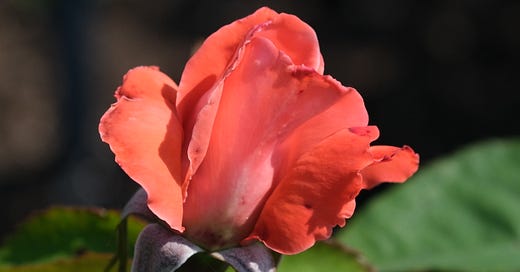We had a fabulous day yesterday, lecturing at my alma mater twice as well as celebrating life with my first friend I made from that institution and three generations of his family. That is a red letter day.
The University of Missouri Kansas City is an urban campus with students of every background one can imagine. It was such when I arrived fifty years ago this August and the class we spoke with yesterday, on the verge of standing room only, was similar. Two things did strike me: no identifiable veterans in the student cohort as there were in the 1970s, proudly or sheepishly depending on the setting, wearing visible signs of their service. Nor were there many Asians. Considering the city’s link to such a rich agricultural belt in all directions, that latter fact surprises me somewhat as China seeks food security so I would think they are heavily interested in this part of the country.
The lecture last night was an opportunity to see the two professors most influential in my time at UMKC, Carla Klausner and Jim Falls. Both are retired, though Carla is back in the classroom because her career studying the Israeli-Arab conflict is still so relevant. My friend Kent and his wife Angie came to the lecture as well. We also met folks from the International Relations Council which co-hosted the event with the Dean of the College of Humanities and Social Sciences, Dr. Tamara Falikov. Another old friend of my husband’s, Dr. Geoff Babb from the Army Command and General Staff College at Ft. Leavenworth, served as a most able moderator for the voluminous inquiries resulting from our remarks.
We were delighted to participate in this event and absolutely joyful to have so many questions from the audience. Upon reflection, I was also struck by something so important to realise about how we discuss China, Russia, Taylor Swift and Trace Kelce (hey, we are in Kansas City, people), or whether it will actually make the predicted 70 degrees on 21 February: we think in binary or yes-no terms so we can predict an outcome pretty easily.
Binary thinking means we want unambiguous answers to really tough, almost invariably nuanced questions. I think it goes to how we approach problems: we identify an issue, we frame the issues as a question to answer, we answer the question, then we put it in the ‘done’ file’, then move on to the next problem. Americans see themselves as solvers. We have no need for history to contextualise things, we don’t even determine a solid objective we want to accomplish in far too many cases, but we are comfortable we have solved the relevant problem.
China is a multi-faceted issue, far more complicated for Americans than the Cold War with the Soviets for several reasons. A couple that leap off the page is that China frequently has been our largest trading partner. Not right now as we are definitely in a period of retrenchment from the bilateral ties (China sees it the same way) but we never ever ever had economic linkages with the Russkies that we have had to Beijing for almost five decades. We can argue about whether that was a good idea or not but it’s a fact—punto final.
Additionally, American began attempting to remake China into a Christian nation almost two centuries ago. It’s been a place where some fortunes were made (think Franklin Roosevelt as his father’s vast wealth resulted from his investments in Qing China). We have seen China as a trading and financial center where our benefits would theoretically also help the people living there. In other words, we have figured out the desired outcome.
Similarly, U.S. military personnel from all the services have played an important historic role over the past century and a quarter. Whether it was Army sent to protect U.S. citizens in the decade following the 1900 Boxer Rebellion (where George C. Marshall learned a smattering of pudonghua) or as we poured billions of dollars into the war effort to help Chiang Kai-shek first defeat the Japanese in World War II, then unsuccessfully prevent the CCP from winning the civil war in the late 1940s, we have long term involvement that we never had in Russia—ever. In other words, we cared profoundly about China’s future.
But that caring creates an additional challenge. Because we are Americans, we think there is a yes or no answer to all questions to get where we think things should end. Will the United States go to war with China? Please, yes or no. Not what are the dangers to each state should we go to war but will we go to war.
I don’t know, though I hope not because war is invariably more damaging that any clear cut ‘victory’ or ‘loss’. I have faith in the U.S. military but I also know it could be the first war between two nuclear powers. Talk about potential unknowns.
When will China invade Taiwan? It may do in the near term (note: conditional tense) but there are many reasons it might not.
Will China be successful invading Taiwan? It might (again, conditional tense) but there are many conditions that might make this go poorly, even if the PLAN is now the largest navy by numbers in the world.
Will the CCP fall because of domestic or foreign problems? It might but both types of concerns it faces are daunting, especially the domestic ones. But we as non-Chinese simply don’t have enough data to answer that or the exact configuration of the future to answer.
And on and on.
Kansas City questions, whether African American 19 year olds or 47 year old Caucasian women, were sophisticated, carefully crafted and utterly in sync with our propensity to look for a single response when the variables, largely caused by human behaviour, are almost endless. Binary thinking tends to take us to straight lining outcomes yet how infrequently those outcomes happen simply gets forgotten.
Those of us who study any part of the world rarely, if ever, call everything right in our analyses. Human behaviour is simply too complex and too unpredictble (yes, I long ago surrendered my union card as a political scientist as it’s a field of modellers and I don’t think you can ever model enough variables. There, I have said it.) Yet, our task last night was to try to throw some light on the things that don’t get discussed often in our contemporary conversations about the China—as a threat or as a country. Chinese leaders certainly don’t want to talk about some of what we wanted to discuss last night (unemployment among youth, shutting down any form of external oversight of the Party, and difficulties any PLAN invasion of Taiwan would encounter are three immediate examples). Our role as analysts is not to straight line outcomes but to show how each of the variables can create multiple effects (actions…create….consequences) we aren’t raising in our public policy discussions often enough.
China most definitely is the topic de jour in this country and likely will be for the foreseeable future. Neither of us thinks the road ahead will be easy for Americans but we believe it’s not merely an easy prediction of how to solve that China problem. It’s tough to plan simply for preventing thermonuclear war as we did with the Soviets. But we are likely not to change China much at all while we have complete power over our own behaviour.
How often we do think about THAT?
Asking questions, however, is the single best start. I appreciate each and every person who took time during our UMKC visit to think about these questions. I regret the moderator did not call upon the lady in the front row who shook her had at least twice as we would have both wanted to hear why she was shaking her head but we welcome any thoughts through this column or other fora. Stay engaged, Kansas City! And Flagstaff and Brighton, Michigan, and Brunswick, Maine. We are all better when we share our thoughts with each other by building mutual understanding rather than trying to erect barriers to ideas.
Thoughts? Questions? Rebuttals? Thank you for reading ACC today as conversation is its mission.
It’s supposed to be warm today but I haven’t been out yet. I provide you a photograph or two from our visit last May to the Rose Garden at Kansas City’s Loos Park. I am so ready for spring.
Be well and be safe. FIN






Touche’, Susan. Absolutely true.
Dale,
You remain the keenest of observers. I am indeed convinced all we have control over is ourselves but we unceasingly squander that power in a futile hope we have the superpower (pun intended) to ‘fix’ China. NO NoNO no. I remain skeptical that Taiwan won’t fold. Yes, Thai increased some capabilities modestly but we have created a moral hazard AND why would Taiwan citizens ever think China will change course. not the CCP but China as this remains a China issue.